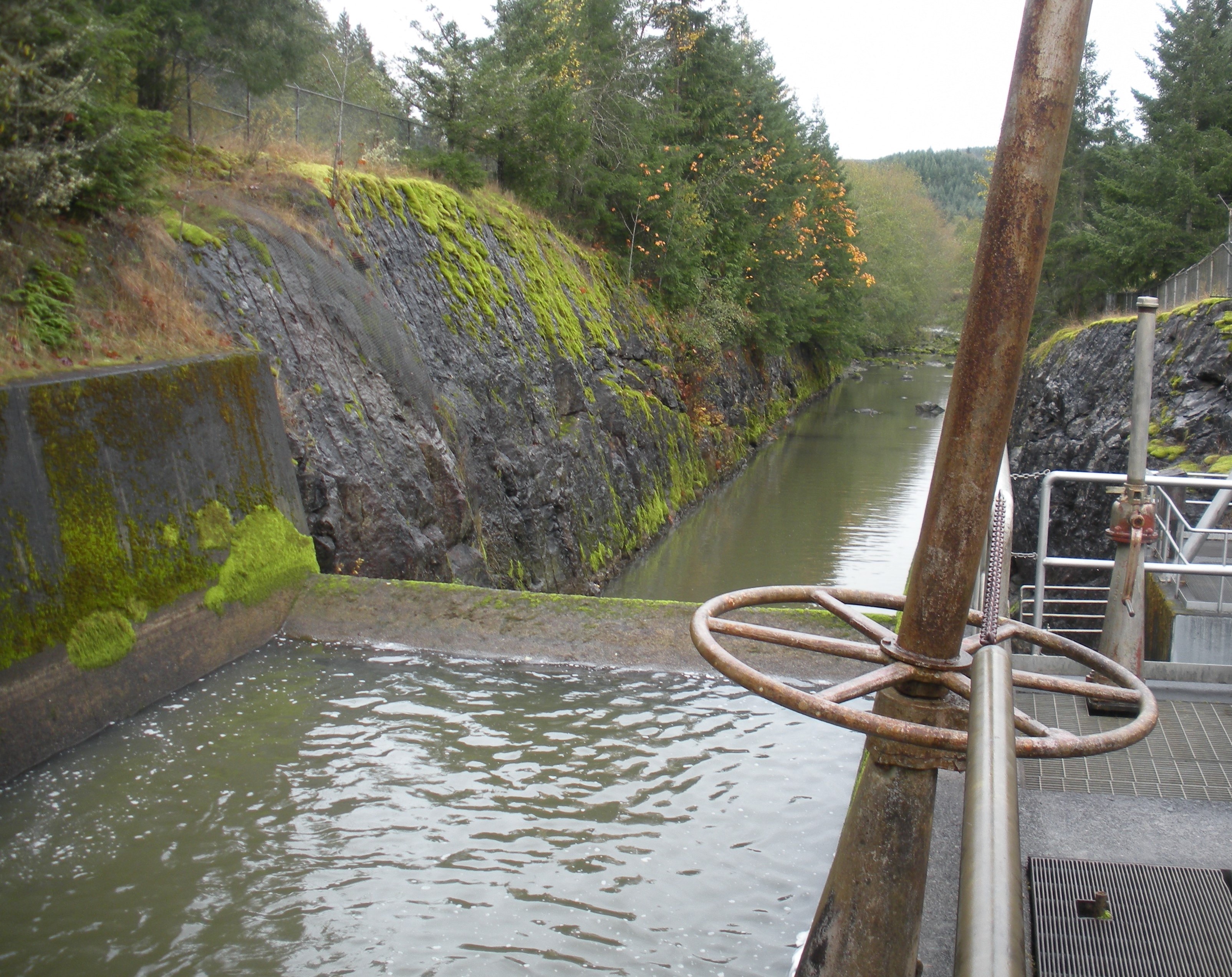
This rock channel leads from the spillway of the Skookumchuck Dam downstream to the Skookumchuck River.
About the webinar
Our Office of Chehalis Basin (OCB) will hold a virtual webinar at 6 p.m. Wednesday, Sept. 28, to share information and take questions about the Skookumchuck Dam in Thurston County. The webinar will focus on OCB’s ongoing evaluation of the dam, as well as options to reduce downstream flooding, improve fish passage, or both. This evaluation supports the Chehalis Basin Strategy to reduce damages from major floods, and restore and enhance aquatic habitat in the Chehalis River Basin.
To attend the webinar, please register online.
Skookumchuck Dam background
The energy company TransAlta owns and operates the dam, which is located about 15 miles upstream from Centralia. Completed in 1970, the dam and its associated four-mile-long reservoir provides water for the Centralia Steam Generation Plant. TransAlta uses water from the reservoir to operate its remaining plant turbine and recently created a water bank to market their rights to other water uses in the river basin.
OCB and the Chehalis Basin Board initiated the dam feasibility study last year after TransAlta announced it will close its final coal burner in 2025.
While there are no immediate planned changes to the dam, OCB and the board have been studying whether adjusting dam discharges, modifying the dam’s structure, or completely removing it could help improve fish passage or habitat, or reduce flood-related damage on the Skookumchuck River.
Although the dam is not designed or operated in a manner to help reduce flooding on the Skookumchuck River, the structure has provided some benefit. For example, when the catastrophic December 2007 flood struck the Chehalis River basin, the reservoir behind the dam was unusually low, allowing it to hold back water that would have otherwise made flooding in the cities of Bucoda and Centralia even worse.
Assessment process
We are working with TransAlta, representatives from the cities of Bucoda and Centralia, the Quinault Indian Nation, and the Confederated Tribes of the Chehalis Reservation, as well as environmental restoration and flood experts, to collect data and build models to evaluate options for the dam.
We anticipate we'll be ready to share our assessment with the board in early 2023.
Upon reviewing the results, the board may request additional studies, select an option to pursue further, or take no steps. If the board decides it is interested in moving forward with a preferred option, any project will require an agreement with TransAlta, additional design, environmental review, and permits ahead of construction.

